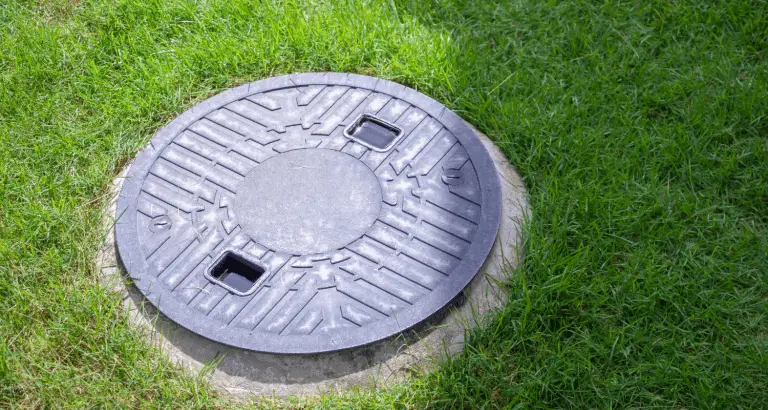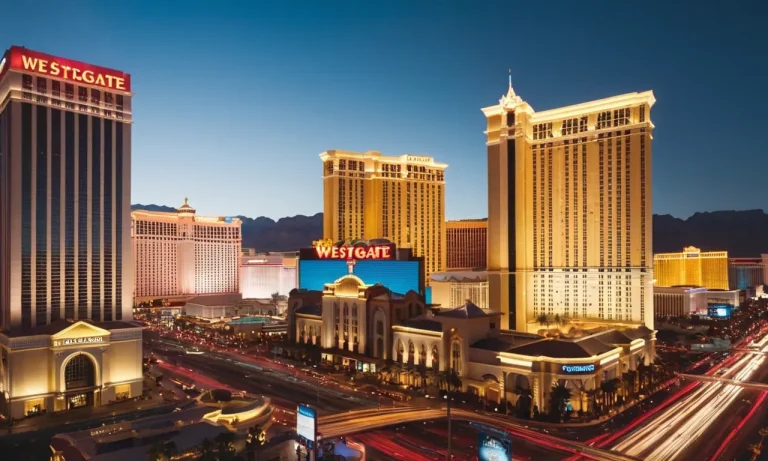Understanding Facility Fees In Hotels: A Comprehensive Guide
Have you ever been surprised by an unexpected charge on your hotel bill? If so, you’re not alone. Many travelers are caught off guard by a fee known as the ‘facility fee’ or ‘resort fee.’ These fees can add a significant amount to your overall cost, leaving you feeling frustrated and misled.
If you’re short on time, here’s a quick answer to your question: Facility fees, also known as resort fees, are mandatory charges added to a hotel’s room rate to cover the cost of amenities and services provided by the property.
These fees are often not included in the advertised room rate, leading to confusion and frustration among guests.
In this comprehensive article, we’ll dive deep into the world of facility fees in hotels. We’ll explore what they are, why hotels charge them, and how you can avoid or minimize these fees. Additionally, we’ll discuss the ongoing debate surrounding the transparency and legality of these charges, providing you with a well-rounded understanding of this controversial topic.
What are Facility Fees in Hotels?
When booking a hotel stay, you may have encountered the term “facility fee” or “resort fee” added to your total cost. These fees, often overlooked or misunderstood by travelers, can significantly impact the overall expense of your trip.
Understanding what facility fees are and what they cover is crucial for making informed decisions and avoiding unexpected charges.
Definition and Purpose
Facility fees, also known as resort fees or destination fees, are mandatory charges imposed by hotels on top of the room rate. These fees are designed to cover the costs of various amenities and services offered by the hotel, such as fitness centers, pools, Wi-Fi access, and other recreational facilities.
The purpose of these fees is to generate additional revenue for the hotel while providing guests with access to on-site amenities.
Common Amenities Covered by Facility Fees
The amenities and services covered by facility fees can vary from hotel to hotel, but some common inclusions are:
- Use of the hotel’s fitness center or gym
- Access to swimming pools and hot tubs
- Complimentary Wi-Fi or internet access
- Local phone calls and toll-free calls
- Newspapers or magazines
- Shuttle services within a certain radius
- Access to resort activities like tennis courts, golf courses, or beach amenities
It’s important to note that some hotels may bundle additional services or amenities into their facility fees, such as bottled water, in-room coffee, or even parking. According to the Federal Trade Commission (FTC), facility fees can range from $10 to $50 per night, with an average of around $25 per night in the United States.
😮
Mandatory vs. Optional Fees
One of the main distinctions to make when it comes to facility fees is whether they are mandatory or optional. Mandatory facility fees are automatically added to your hotel bill, regardless of whether you use the amenities or not. On the other hand, optional fees are typically charged only if you choose to use certain services or amenities.
| Mandatory Facility Fees | Optional Fees |
|---|---|
| Automatically included in the total cost | Charged only if you use specific services |
| Cannot be waived or removed | Can be declined or avoided |
| Cover basic amenities like pools and Wi-Fi | May include extras like spa treatments or premium Wi-Fi |
While mandatory facility fees can be frustrating for guests who don’t plan to use the included amenities, hotels argue that these fees help maintain and improve the overall guest experience. However, recent regulations from the FTC aim to increase transparency and prevent deceptive practices surrounding facility fees, ensuring that consumers are better informed about these charges upfront.
👏
Why Do Hotels Charge Facility Fees?
Hotels often charge facility fees for a variety of reasons, but the primary motivation is revenue generation. These fees, which are typically added to the nightly room rate, provide an additional stream of income for the hotel, helping to offset operational costs and increase overall profitability.
Revenue Generation
As the hospitality industry has become increasingly competitive, hotels are constantly seeking ways to maximize their revenue streams. Facility fees offer a means to generate additional revenue without necessarily raising room rates, which could potentially deter guests.
According to a study by Business Jet Traveler, the average facility fee in the United States was $25.49 in 2021, up from $24.35 in 2020. This seemingly small fee can add up quickly, especially for longer stays or larger properties.
Competitive Advantage
In some markets, charging facility fees has become a common practice among hotels, and those that don’t impose such fees may be at a competitive disadvantage. By bundling certain services and amenities into a facility fee, hotels can advertise lower base room rates, which can be appealing to budget-conscious travelers.
However, this practice has faced criticism from consumer advocacy groups and government agencies, who argue that these fees can be misleading and make it difficult for guests to accurately compare prices across different hotels.
Bundling Services and Amenities
Facility fees are often used to cover the cost of various services and amenities that guests might expect to receive at no additional charge. These can include:
- Access to fitness centers, pools, and other recreational facilities
- High-speed internet access
- In-room amenities like bottled water or snacks
- Shuttle services to nearby attractions or transportation hubs
By bundling these services into a facility fee, hotels can justify the additional charge and, in theory, provide guests with a more inclusive and convenient experience. However, some travelers may prefer à la carte pricing, where they only pay for the services they actually use.
While facility fees can be a source of frustration for guests, they have become an integral part of the hotel industry’s revenue model. As with any additional fee, it’s essential for travelers to be aware of facility fees when booking their stays and to factor them into their overall budget.
By understanding the reasons behind these fees, guests can make informed decisions and determine whether the bundled services and amenities are worth the additional cost.
Transparency and Legality Concerns
While facility fees have become a common practice in the hospitality industry, their implementation has raised concerns regarding transparency and legality. Consumer protection laws and industry regulations aim to safeguard guests from unfair or deceptive practices, but the ongoing debates and lawsuits surrounding facility fees highlight the complexities and differing perspectives on this issue.
Consumer Protection Laws
Various consumer protection laws, such as the Truth in Lending Act and the Fair Credit Reporting Act, have been enacted to ensure transparency in pricing and prevent misleading advertising. These laws require hotels to clearly disclose all mandatory fees and charges upfront, including facility fees.
Failure to comply with these regulations can result in hefty fines and legal action. According to a 2019 FTC report, the agency received over 1.7 million consumer complaints related to deceptive practices in various industries, including hospitality.
Industry Regulations and Guidelines
Several industry organizations, such as the American Hotel & Lodging Association (AHLA) and the World Travel & Tourism Council (WTTC), have established guidelines and best practices for the disclosure of facility fees.
These guidelines aim to promote transparency, consistency, and ethical practices within the industry. However, their implementation and enforcement remain voluntary, leading to variations in how hotels disclose and charge facility fees.
Ongoing Debates and Lawsuits
- Numerous lawsuits have been filed against hotels and online travel agencies (OTAs) for allegedly failing to disclose facility fees prominently or bundling them into the advertised room rates. In 2019, Marriott and Hilton faced lawsuits from the attorney general of Washington, D.C., for allegedly hiding resort fees from consumers.
- Consumer advocacy groups, such as Consumer Watchdog, have been vocal critics of facility fees, arguing that they are deceptive and misleading to consumers. They have called for stricter regulations and enforcement to protect consumer rights.
- On the other hand, the hotel industry has defended facility fees as a way to unbundle amenities and services, allowing guests to pay for what they use. However, critics argue that these fees are often mandatory and not optional, raising questions about their true purpose.
As the debates continue, it is crucial for both hotels and consumers to stay informed about the latest developments and legal implications surrounding facility fees. Transparency, clear communication, and adherence to consumer protection laws are essential for maintaining trust and ensuring a positive guest experience.
Strategies to Avoid or Minimize Facility Fees
Research and Comparison Shopping
One of the most effective ways to avoid or minimize facility fees is to do your homework and compare rates across different hotels and booking platforms. Many travel websites, such as TripAdvisor and Kayak, allow you to filter out hotels that charge mandatory resort or facility fees.
Additionally, you can search for hotels that explicitly advertise “no resort fees” or “all-inclusive rates.” By comparing the total cost, including taxes and fees, you can make an informed decision and potentially save a significant amount of money.
Negotiating with Hotels
Don’t be afraid to negotiate with hotels directly. Many hotels are willing to waive or reduce facility fees, especially if you’re a frequent guest or booking a longer stay. According to a survey by Consumer Reports, around 35% of travelers who negotiated successfully had their resort fees waived or reduced. It’s always worth politely inquiring about the possibility of removing or lowering these fees when making your reservation or at check-in.
Loyalty Programs and Memberships
If you frequently stay at a particular hotel chain or travel frequently for business, consider joining their loyalty program or membership club. Many hotel loyalty programs offer benefits such as waived facility fees or discounted rates for members.
For example, Marriott Bonvoy members can enjoy free Wi-Fi and waived resort fees at certain properties. Additionally, some credit card companies, like Chase, offer hotel-specific benefits, including waived resort fees, when you book through their travel portals.
Alternative Accommodation Options
If avoiding facility fees is a top priority, consider exploring alternative accommodation options like vacation rentals or home-sharing platforms like Airbnb and VRBO. These options often provide more value for money and don’t typically charge additional resort or facility fees.
However, it’s essential to read the listings carefully and communicate with the hosts to ensure transparency regarding any additional charges. 😊
Remember, being an informed traveler and understanding the various strategies can help you minimize or even avoid facility fees altogether, allowing you to enjoy your hotel stay without any unexpected expenses. 👏
Conclusion
Facility fees in hotels have become a contentious issue, sparking debates about transparency, consumer protection, and fair pricing practices. While some argue that these fees are a legitimate way for hotels to cover the cost of amenities and services, others view them as deceptive and misleading.
As a traveler, it’s essential to be aware of facility fees and understand their implications on your overall travel expenses. By conducting thorough research, negotiating with hotels, and exploring alternative accommodation options, you can make informed decisions and potentially avoid or minimize these charges.
Ultimately, the ongoing discussions surrounding facility fees highlight the need for greater transparency and clearer communication from the hospitality industry. By staying informed and advocating for consumer rights, travelers can play a role in shaping fairer and more transparent pricing practices in the future.







